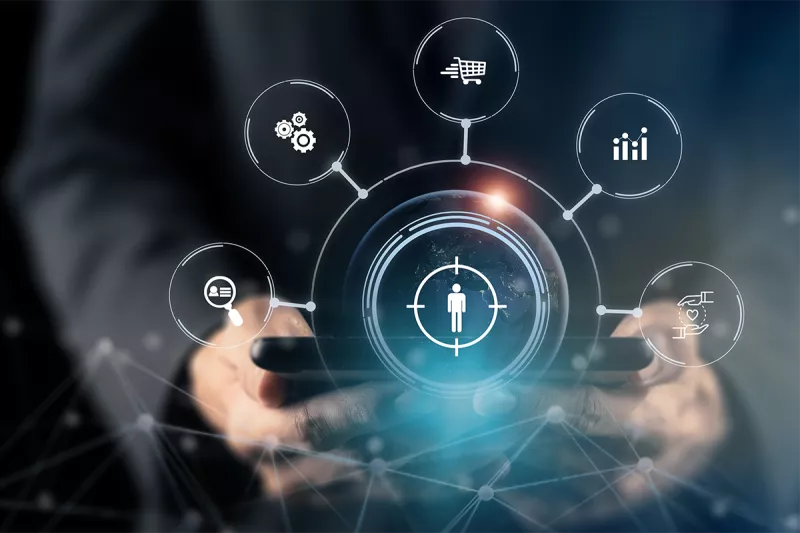In today’s fast-paced digital landscape, personalization has emerged as a crucial strategy for businesses aiming to connect with their customers on a deeper level. As consumers are bombarded with countless marketing messages daily, they are increasingly expecting brands to recognize their unique preferences and deliver tailored experiences. Personalization in digital marketing goes beyond simply addressing customers by their names; it involves creating meaningful interactions that resonate with their needs and interests. Here’s a closer look at the role of personalization in digital marketing and why it matters.

Table of Contents
Toggle1. Enhances Customer Experience
Personalization significantly improves the customer experience by making interactions more relevant and meaningful. By leveraging data about customers’ behaviors, preferences, and past interactions, businesses can tailor their messaging and offers to suit individual needs. This approach not only makes customers feel valued but also encourages them to engage more with the brand, leading to higher satisfaction and loyalty.
2. Increases Engagement Rates
Consumers are more likely to engage with content that speaks to their interests. Personalized marketing messages—whether in emails, social media posts, or website content—have been shown to generate higher engagement rates compared to generic messages. According to studies, personalized emails can achieve up to a 29% higher open rate and a 41% higher click-through rate. By delivering tailored content, brands can foster stronger connections and drive more meaningful interactions.
3. Boosts Conversion Rates
Personalization directly impacts conversion rates. When customers receive targeted offers that align with their needs, they are more likely to make a purchase. For instance, e-commerce platforms can recommend products based on users’ browsing history or previous purchases, creating a seamless shopping experience. This targeted approach reduces the time customers spend searching for products and increases the likelihood of conversion.
4. Builds Customer Loyalty
Customers are more inclined to remain loyal to brands that understand their preferences and provide personalized experiences. When customers feel recognized and valued, they are more likely to return for repeat purchases and recommend the brand to others. Personalization fosters a sense of belonging and strengthens the emotional connection between customers and the brand, leading to long-term loyalty.
5. Facilitates Targeted Marketing Campaigns
Personalization allows businesses to segment their audience effectively and create targeted marketing campaigns. By analyzing customer data, businesses can identify distinct customer segments and tailor their messaging accordingly. This targeted approach ensures that marketing efforts are focused on the right audience, leading to higher conversion rates and more efficient use of resources.
6. Improves Customer Insights
Implementing personalization strategies requires businesses to gather and analyze customer data. This data-driven approach provides valuable insights into customer behavior, preferences, and trends. By understanding how customers interact with their brand, businesses can refine their marketing strategies, optimize their offerings, and anticipate future needs, ultimately leading to better decision-making.
7. Enhances Customer Journey
Personalization plays a pivotal role throughout the customer journey, from awareness to post-purchase. By delivering relevant content at each stage, businesses can guide customers through the decision-making process. For example, personalized landing pages that address specific pain points can help convert potential leads, while tailored follow-up emails can enhance post-purchase satisfaction and encourage repeat business.
8. Strengthens Brand Identity
A personalized marketing approach helps establish a strong brand identity that resonates with customers. Brands that prioritize personalization are often perceived as more customer-centric and trustworthy. By consistently delivering tailored experiences, businesses can differentiate themselves in a competitive market and foster a positive brand image that attracts new customers.
9. Utilizes Technology Effectively
Advancements in technology, such as artificial intelligence (AI) and machine learning, have made personalization more accessible and effective. These technologies enable businesses to analyze vast amounts of data quickly, allowing for real-time personalization that can adapt to customer behaviors. Automated systems can deliver personalized content at scale, ensuring that every customer interaction is relevant and engaging.
10. Addresses Privacy Concerns
While personalization offers numerous benefits, it’s essential for businesses to address privacy concerns. Customers are increasingly aware of data privacy issues and expect brands to handle their information responsibly. By being transparent about data collection practices and providing customers with control over their data, businesses can build trust and foster a positive relationship with their audience.
Conclusion
Personalization has become a cornerstone of successful digital marketing strategies. By enhancing customer experience, boosting engagement, and fostering loyalty, personalized marketing not only drives conversions but also builds lasting relationships between brands and their customers. As technology continues to evolve, businesses must embrace personalization to stay competitive in a crowded marketplace. By understanding their customers and delivering tailored experiences, brands can create meaningful interactions that resonate with their audience and drive business success.


No responses yet